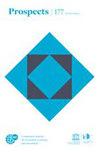设想礼物经济中的知识交换
Q1 Social Sciences
引用次数: 0
摘要
新教育契约的关键在于认识到知识不是稀缺的,它不是商品,它不属于市场经济。相反,知识交换是礼物交换,而教育,如果没有受到阻碍或限制,就会显示出它的丰富性。正如生态学家罗宾·沃尔·基默尔在她的文章《服务性浆果:丰富的经济》中所描述的那样,知识的丰富与大自然的丰富有着相似的运作方式。因此,我们可以在教育和新生态农业之间找到富有成效的相似之处,新生态农业认识到生命多样性的相互交织的性质和重要性,以及这种多样性的协同作用所带来的礼物。就像单一种植让位于整体种植一样,单一种植学习也必须让位于范式转变。美国司法部(Department of Justice)对23所大学提起诉讼,其中包括常春藤盟校(us v Brown, 1992年和1993年),该案中的论点帮助我们预见了这种转变。通过在法庭上表达的为招生实践辩护的观点,我们可以看到如何构建一种新的教育范式所必需的合作。本文通过关注当知识交换被理解为礼物交换时发生的关键转变,邀请我们更全面地设想这种新范式。本文章由计算机程序翻译,如有差异,请以英文原文为准。
Envisioning knowledge exchange in a gift economy
Abstract Key to a new contract for education is understanding that knowledge is not scarce, it is not a commodity, and it does not belong in a market economy. Instead, knowledge exchange is gift exchange, and education, when not thwarted or constricted, demonstrates its abundance. The abundance of knowledge operates in ways similar to the abundance of nature, as described by the ecologist Robin Wall Kimmerer in her essay “The serviceberry: An economy of abundance”. We can therefore draw productive parallels between education and the new agroecology, which recognizes the intertwining nature and importance of the diversity of life and the gifts that come from the synergy of that diversity. Just as monoculture farming gives way to holistic farming, monoculture learning must also give way to a paradigm shift. Helping us envision this shift are arguments made in a court case in the US brought by the Department of Justice against 23 universities, including those in the Ivy League (US v Brown, 1992 and 1993). Through ideas expressed in court in defense of admissions practices, we can see how the cooperation necessary for a new education paradigm might be constructed. This essay invites us to more fully envision this new paradigm by focusing on the key shift that happens when knowledge exchange is understood to be gift exchange.
求助全文
通过发布文献求助,成功后即可免费获取论文全文。
去求助
来源期刊

Prospects
Social Sciences-Education
CiteScore
13.10
自引率
0.00%
发文量
37
期刊介绍:
Prospects provides comparative and international perspectives on key current issues in curriculum, learning, and assessment. The principal features of the journal are the innovative and critical insights it offers into the equitable provision of quality and relevant education for all; and the cross-disciplinary perspectives it engages, drawing on a range of domains that include culture, development, economics, ethics, gender, inclusion, politics, sociology, sustainability, and education.
Prospects aims to influence a wide range of actors in the field of education and development, whether academics, policy-makers, curriculum-developers, assessors, teachers or students. Unlike other journals in the field, which deal only with theoretical or research-related aspects, Prospects also focuses on policy implementation and aims at improving the extent and effectiveness of communication between theorists and researchers, on one side, and policy makers and practitioners, on the other.
The journal thus welcomes innovative empirical research, case studies of policy and practice, conceptual analyses and policy evaluations, as well as critical analyses of published research and existing policy.
Founded in 1970 and published in English by Springer, Prospects is among the most well-established journals in the field. Editions in Arabic and Mandarin Chinese are available as well.
The journal is edited by the International Bureau of Education (IBE), in Geneva. A leading UNESCO Institute and a global center of excellence in curriculum and related matters, the IBE is recognized and valued for the specialist knowledge and expertise that it brings to Member States, promoting new shared global understanding of curriculum, teaching, learning, and assessment.
 求助内容:
求助内容: 应助结果提醒方式:
应助结果提醒方式:


